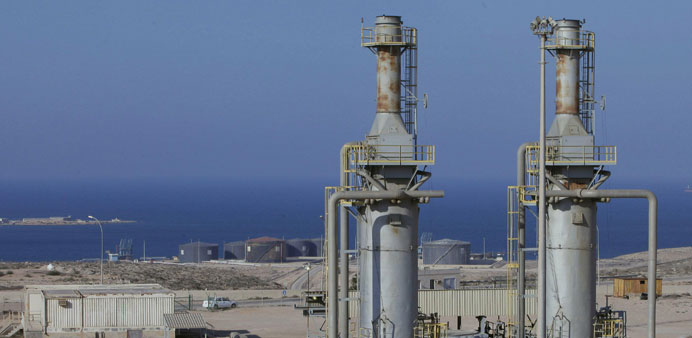A general view of the Marsa al Hariga oil port in the city of Tobruk. The output drop is the latest blow to the nation, where the oil sector accounts for 70% of GDP, 95% of state revenues and as much as 98% of exports.
AFP/Tripoli
Libya’s oil production has dropped to 230,000 barrels per day from 570,000 bpd in early January after the closure of Al-Sharara field in the south, state-owned National Oil Corp said.
The drop is the latest blow to the oil-rich but strife-hit North African nation, where the oil sector accounts for 70% of GDP, 95% of state revenues and as much as 98% of exports.
“The country’s oil production has fallen to 230,000 bpd after the closure on Thursday evening of the oilfield at Al-Sharara,” which has an output of 330,000 bpd, NOC spokesman Mohamed al-Harairi said.
Harairi said the NOC had shut down the field because “protest movements near the... wells no longer ensure the optimal security conditions,” without giving further details.
Relaunch of production at Al-Sharara in early January had pushed Libya’s output up to 570,000 bpd, when protesters in the area lifted their blockade of the site.
Tripoli has struggled to impose its will across the country since the 2011 uprising that toppled the regime of Moamer Kadhafi, as groups of ex-rebels have held onto their weapons and defied the government’s authority.
Supporters of a federal system of government sparked a crisis in the oil sector last July, when they blockaded key terminals in the east, cutting output to 250,000 bpd, from 1.5mn bpd before their strike.
The oil crisis has already cost the country more than $10bn (7bn euros) in losses, according to estimates from the oil ministry and the World Bank.
Al-Sharara is run by Akakus, a joint venture between the NOC, Spanish company Repsol, France’s Total and Austria’s OMV.

